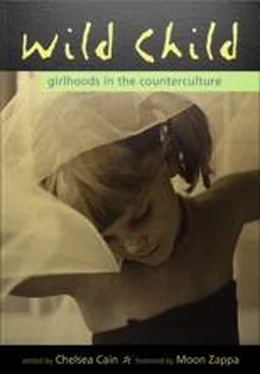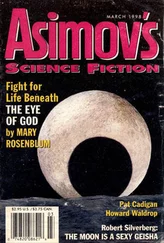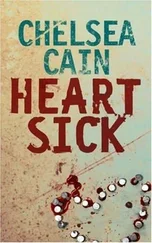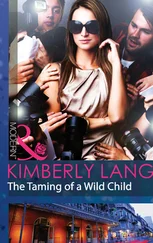She stopped in and asked the cashier if they had any sheet metal. The store was a kind of counterculture supermarket, stocked with incense, bolts of cotton, paraffin, books on homesteading, yarn and looms. But it seemed that ‘everything’ didn’t include sheet metal.
‘What do you want it for?’ the woman asked. It was a slow day in the store. Had there been a line of customers, impatient to buy beeswax and clay, our lives might have taken a different turn.
‘I need to patch a hole in the side of my mail truck,’ my mother said.
‘Well’ the woman offered, ‘we don’t have sheet metal, but we have Jim, and he has a mail truck, too.’ She yelled toward the back room, and out loped my future stepfather, a handsome lanky man in square-toed Frye boots, smiling an easy smile.
Jim came out to the curb and looked over the rust spots. He and Mother talked about their vans, how much they’d paid at auction, where they were headed. Jim also had his eyes on Mexico. And at the very moment my mother dropped by, he had been building a kiln in the back of the store for the Earth Guild’s pottery studio. It seems she had stumbled on a man who could help her turn her schemes into brick and wood. By the time they finished talking, the sun was low in the sky and they had a date to change their oil together.
Jim had embraced the counterculture, but not on political terms. He wore hand-painted ties, listened to the Stones, and collected Op Art. When he met my mother, he was living in a commune in Harvard Square called The Grateful Union. ‘Those guys were uptown,’ my mother says. ‘Into spare living and Shaker furniture.’
She and Jim soon made plans to head across the country under the same roof. We would take his truck, since it was considerably cozier than my mother’s. A platform bed stretched across the width of the van, and a hinged half-moon table folded down from the wall and perched on one leg. We ate sitting cross-legged on the mattress. The walls were lined with bookcases, fitted with bungee cords to hold the volumes in place. On a shelf just behind the cab was our kitchen: a two-burner propane cooking stove, a tiny cutting board, and a ten-gallon water jug. Jim covered the metal floors with Persian rugs and hung a few ornaments on the wall: a plaque with the Chinese characters for peace, prosperity, and happiness; a yellow wicker sun.
Before we set out, Jim bought a small wood stove and bolted it to the floor near the back wall. The smokestack jutted out the side of the truck, the hole weather-sealed with the fringe from a tin pie plate. One of Jim’s friends from The Grateful Union wired a stereo system into the van, and Mother sewed heavy denim curtains that attached to the window frames with velcro, so we could have privacy at night. The engine on these snub-nosed trucks bulged into the cab and was housed by a metal shell that served as a shelf for bags of mail. Jim cut a piece of thick foam just the shape of the engine cover, which would be my bed. A perfect fit. I was about the size, in those days, of a sack of mail.
In the spring of 1970, we packed up our essential belongings and set out on a year-long journey across the country, down the eastern seaboard and then across the low belly of the continent to California. The thrill of traveling sustained me for a while, but it was a difficult age to be rootless. I played with other kids for a day or two at a campground or a city park, and then we drove on. After a day on the road, Mother tucked me in on my foam pad, warmed from below by the engine’s heat. In the footwell below me was a small pot we peed in during the night, and so I drifted off to the smell of urine and the tick of the cooling pistons. Now and then, when we were parked on some dark residential street, I would wake to the knock of a policeman, asking us to move along.
And move along we did, until our funds started to run thin, and Mother and Jim began to search for a piece of land, ‘our pie in the sky,’ as Jim called it. Mother was browsing through a copy of Mother Earth News when she saw a classified ad listing land for sale. She located the town, which had a population of two thousand and was marked with the tiniest speck the map allowed, and we drove up through San Francisco headed for that dot.
We ended up buying a clapboard house in the heart of this coastal valley town, a half-acre plot that came with a stucco duplex. Later, Mother would say that you had to call the people who lived in those buildings homeless. Only two out of the four toilets worked. The ceiling plaster bloomed with stains. There were a handful of ramshackle sheds on the property and a line of rusted cars in the driveway. The yard was nothing but thistle and dry grass. They dickered with the landlord a little, and agreed to buy the place for $18,000.
Our new address was 10,000 Main Street. Apparently the town’s founders had been anticipating an explosive growth period which never arrived. Just past our house, the only sidewalk in town ceased abruptly, the last slab jutting out toward the cow pastures and orchards down Powerhouse Road. We would hold down the end of the main drag, on about an acre of good river valley soil gone hard from neglect.
We moved into the front apartment, formerly inhabited by an old alcoholic woodcutter named Floyd, who died in his bed shortly after we arrived. It took us a week of scrubbing to make that place fit to live in. There was standing water in the sink that the neighbor told us hadn’t been drained for six months. Mother made batik curtains for the windows, and lined the musty drawers with butcher paper. In the bedroom, the wallpaper hung in thick tatters, a yellowed flowery print laced with ribbons. We pulled that down and found a layer of cheese cloth tacked beneath it, and when that was stripped away, solid foot-wide redwood planks, rough planed from trees that must have been five hundred years old.
I was given Floyd’s bedroom. Mother and Jim slept in the living room on a bed that doubled as a couch by day. I was not yet five, and it was summer, so I had to go to bed before the sun went down, which felt like exile from the world of light. I would press my face against the screen and watch the older neighborhood kids playing kickball in the street or straddling their bikes on the corner. One evening, not long after we had moved into the house, my mother and Jim came to tuck me in, and the two of them lingered for a moment. Mother sat on the edge of my bed and sang to me. Jim stood in the middle of the room with his hands in his pockets, looking out the western window at the torn-up yard, the bristle of cattails in the ditch, and the corrugated roof of Mel’s welding garage across the street, where he went every afternoon to buy glass bottles of Coke from the vending machine.
The novelty of the two of them tucking me in together in my very own bedroom set me humming with pleasure, and I wanted to say something in honor of this, but I didn’t dare break their reverie. Even as I lay there, mute with happiness, I was conscious of the fragility of the scene-two parents, one child, pausing for a few moments together under one roof at the day’s end.
Late in the summer of 1971, when I was nearly five, my father was released from prison. Friends of his were living on a commune in Oregon, and they had invited him to come and sort himself out.
He came west, as soon as he was free, and gathered me from Mother’s place.
It must have been a shock to see him again, for I have no memory of our first hours together. I know we took a Greyhound bus up to Eugene, and a friend from the commune picked us up and drove us out to the property-acres of dry grass and scrub oak. There, my memories become clearer. The commune members were roughing it-no running water, no electricity, just a few ramshackle houses at the end of a long dirt road.
Читать дальше












